At its annual meeting beginning on March 5, the Chinese National People’s Congress appears poised to adopt a “recommendation” by the Communist Party that the two-term limit for president and vice president be eliminated. The change is of course not an expression of a preferred governance norm for longer terms, but rather a dramatic shift designed to permit President Xi Jinping to stay in power after his second presidential term expires in 2023.
This bolt out of the blue changes decades of Chinese government practice and appears also to be the prelude to changing the Communist Party norm that leaders cannot serve a new term after age 68. Xi, who was born in 1953, will be 69 when his term as general secretary of the Party ends in 2022. Given the practice since Jiang Zemin to ensure that the president and general secretary are one and the same, it appears that if Xi intends to serve a 3rd term as president, he will be invited to stay on as general secretary beyond the age limit.
At this point, there are more questions than answers about what this means for China, and for other countries. I will pose some of the major questions below and offer best guesses on the answers.
1Why does China have term limits and age thresholds for its leaders?
Deng Xiaoping put the limits in place in the 1980s as part of his effort to ensure that China was never again subjected to a crushing dictatorship like that of Chairman Mao and the turmoil it occasioned. China’s Communist system not accepting the Western notion of formal checks and balances, Deng instituted a system with Chinese characteristics designed to prevent return of one-man rule or a cult of personality by preventing leaders from staying indefinitely in power. The term limits for senior government leaders are constitutionally mandated. The age limits for Party leaders are norms that have been respected for over two decades.
2Will this change be limited to the president and vice president?
It will be a huge challenge for the leadership to maintain limits for the tenure of other officials. Deng and his successors have forced powerful Party leaders to retire when they reach the age norm limit, but have been able to do so because they themselves accepted those limits, at least insofar as formal positions were concerned. Party veterans in the future will point to Xi’s defiance of the age limit and assert their right to continue in power. Deng’s system to ensure a rotation of officials in leadership positions will be very much in peril.
Deng’s system to ensure a rotation of officials in leadership positions will be very much in peril.
3Is this change a sign of Xi’s strength?
Yes and no.
Yes in that it is unlikely that any leader since Deng could have forced such a change in the face of competing personalities and factions. Xi has successfully used his first term in office to monopolize an array of leadership positions, to have himself declared the “core” of the leadership, and to eliminate other pockets of power through a rigorous anti-corruption campaign (which, to be fair, also has targeted many corrupt officials).
No in that there is reason to believe that the decision to allow Xi indefinite tenure reflects deep concern over instability. Economic restructuring and reform promised when Xi took over the Party in 2012 has been disappointing at best. Mounting debt at the regional level, in banks, and by private and state-owned companies alike has caused international credit institutions to flash yellow lights and is preoccupying Chinese leaders. The younger generation is notably unimpressed by the repressive heavy hand of the Party in general and Xi in particular, as evidenced by the constant chase by censors to keep up with social media critics. Investigations have taken down an extraordinary number of senior leaders, from Bo Xilai and Zhou Yongkang to the former vice chairmen of the Central Military Commission and director of the General Office, among many others. With so many leaders having bitten the dust, it seems likely that others who have remained in place feel both unease and uncertain loyalty to the top.
4What does this mean for Chinese governance and decisionmaking?
It is likely to mean an even greater centralization of decisionmaking and slowness in getting important matters resolved. Lower-ranking officials, always cautious, will be more hesitant to stick their necks out to decide consequential and inconsequential matters, knowing that power at the very top is even more concentrated than before. Officials will wait for guidance rather than offering suggestions, and internal Party dissent—which has long been more lively than outsiders realize—will shrivel away to be replaced by fawning demonstrations of loyalty.
Dictatorships are able to make some decisions more easily than democratic or consensus-based systems. China has been a dictatorship since 1949, so the decisionmaking strengths and weaknesses of the system will be more of degree than kind.
5How will this affect the transition of power to the next leadership, whenever that may come?
Negatively. Since 1989, Chinese leadership transitions have been smooth and without visible turmoil. There has been a regularity and predictability to the process. Differences have been worked out behind the scenes among the Party leadership. At least several years out, there has been a presumptive successor, who has invariably moved up when his time came.
Internal Party dissent—which has long been more lively than outsiders realize—will shrivel away.
That is now all up for grabs. If Xi chooses to stay on, it will signal to other ambitious would-be leaders that norms and consensus do not matter. The chances of leadership transitions descending into wars of all against all will be real. Chinese turmoil and repression in 1989 surrounding the pro-democracy demonstrations were made possible by deep splits in the leadership over policy and succession. Since then, in the interests of stability, the Party has not allowed any public splits. Preserving such unity in a Party that has abandoned Deng’s norms will be much harder, with consequences for the stability that Chinese so value.
6Is this primarily about Xi’s overseas imperial ambitions or domestic concerns?
It is almost certainly owing to a combination of unease over domestic instability and personal ambitions rather than foreign policy. Xi already has the authority he needs to project China’s expanded and expanding interests overseas. Having a longer term in office will not affect his ability to do so.
There are heightened concerns in China over the direction of U.S.-China relations, particularly in the economic sphere as the Trump administration contemplates draconian measures to combat unfair Chinese trading practices. But there is no reason why such concerns should affect a power transition four or five years away. While there is anxiety in China over American policy and mood toward China, it is not a Code Red presenting such a challenge that Chinese institutions and norms need to be transformed.
7Is there any good news for China and outsiders looking for sound decisionmaking in this change?
It is hard to find silver linings, but there are a few.
For all of the shortcomings of Xi’s rule on economic reform, the increased domestic repression, and the security challenges to China’s neighbors, Xi is not an impulsive, hot-headed, or irrational leader. The comparisons to Chairman Mao are thoroughly wrong-headed, as Chinese who experienced the Great Leap Forward and Cultural Revolution point out. Foreign leaders tend to value rationality and predictability, and Xi is likely to provide that, though he certainly is capable of boldness, creativity, and assertiveness unsettling to Americans and some neighbors (e.g. South China Sea reclamation, the Belt and Road Initiative, and the establishment of the Asian Infrastructure Investment Bank). One should not assume that having him around longer will prevent some preferable or more emollient leader from emerging.
Also encouraging, those apparently primed to become top advisors to Xi in the wake of this soft coup include two of China’s most capable and outward-looking officials: Wang Qishan and Liu He. The talk of Wang becoming vice president, with special responsibility for the relationship with the United States, is more and more credible (we will know the outcome by mid-March). Wang, who served as the highly capable counterpart of Hank Paulson and Tim Geithner through the economic crisis of 2008-09, has a history of serving as a Mr. Fixit in handling China’s largest problems. He also brings a global and market-oriented perspective to China’s economic challenges. Liu He, who currently serves as Vice Chairman of the National Development and Reform Commission and director of the Leading Group for Financial and Economic Affairs, is likely to be promoted to Vice Premier at the National People’s Congress. He is already Xi’s most trusted economic advisor, and arguably the official with the best understanding of the reforms needed if China is to sustain economic growth and not sink into the so-called “middle income trap.” His promotion as key advisor to a strengthened Xi could provide an opportunity to give some needed fuel to the economic reform process. Whether Xi intends to be bolder in his next term in that respect is, like much else, unknown and unpredictable.
The Brookings Institution is committed to quality, independence, and impact.
We are supported by a diverse array of funders. In line with our values and policies, each Brookings publication represents the sole views of its author(s).

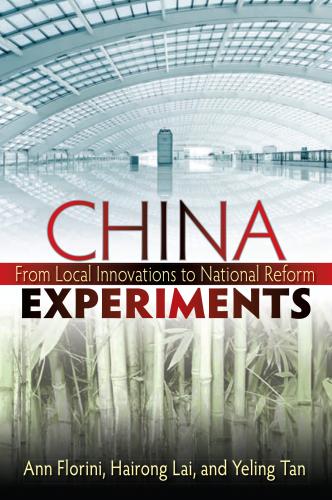
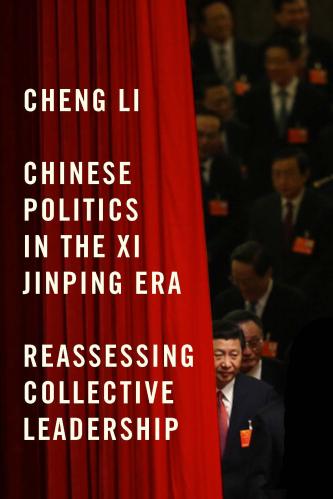
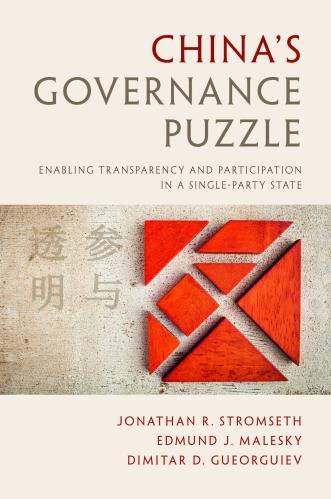
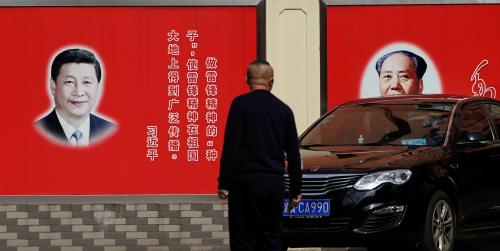
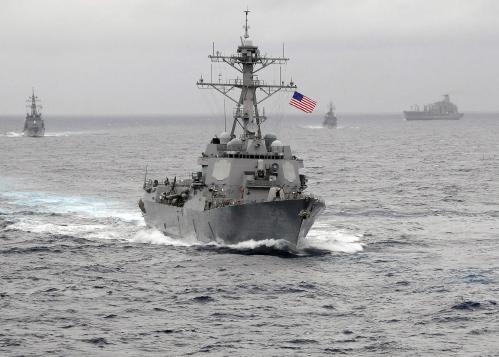
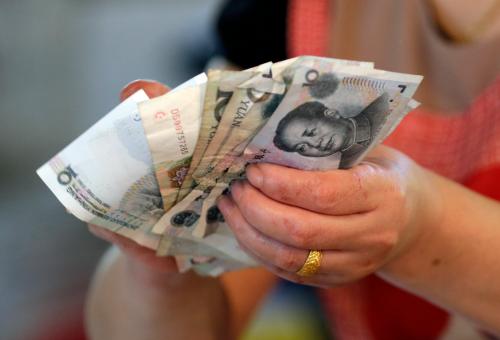




Commentary
7 things you need to know about lifting term limits for Xi Jinping
February 27, 2018